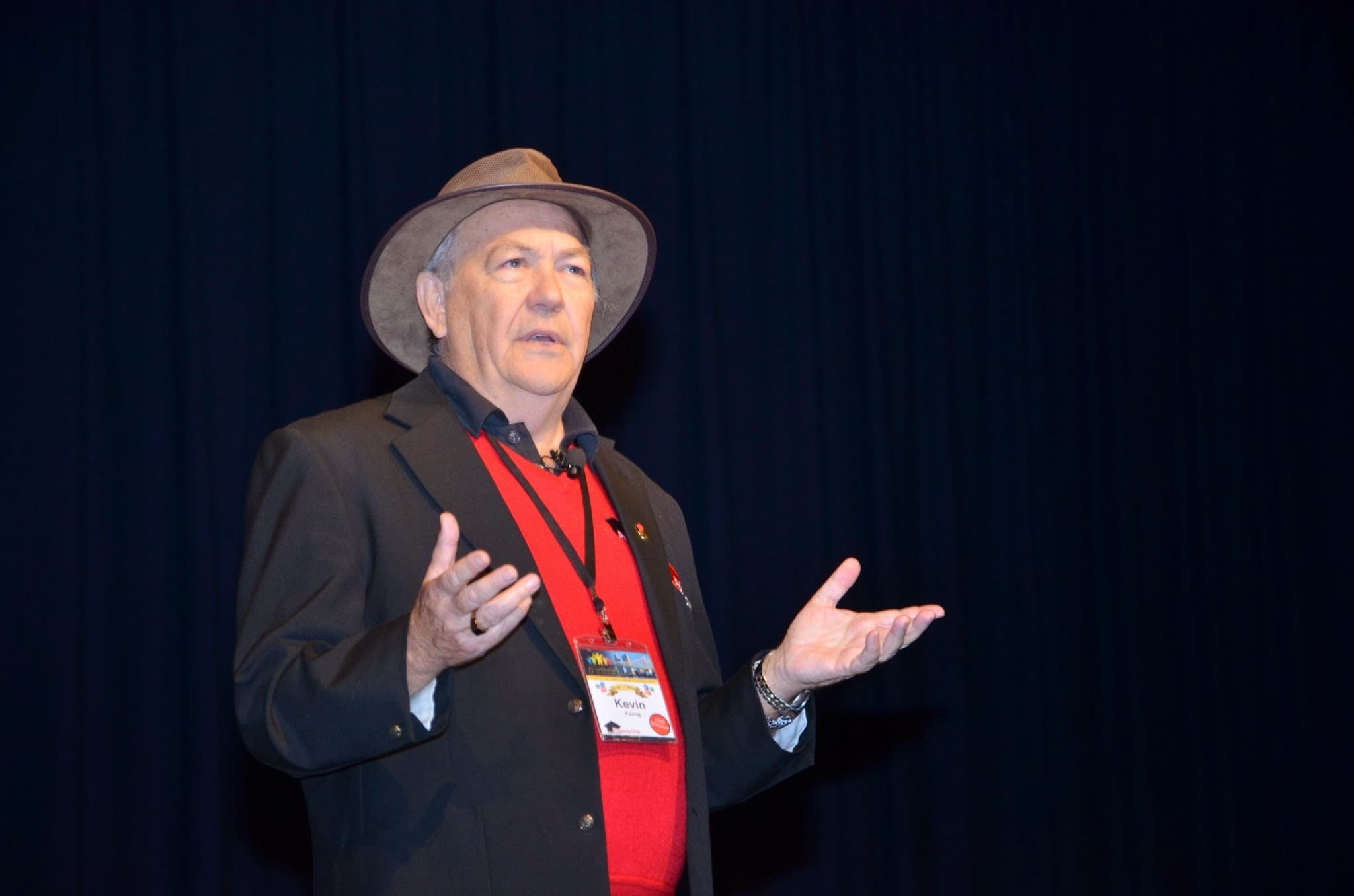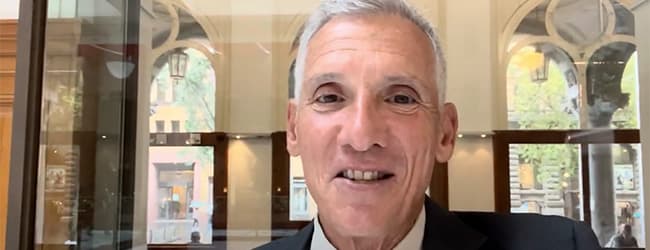
- 5 February 2024
SELECT COMMITTEE ON THE COST OF LIVING
__YOUNG, Mr Kevin, President, Property Club __
CHAIR: I welcome representatives from the Real Estate Institute of Western Australia and the Property Club. Thank you both very much for taking time to speak to the committee today. Information on parliamentary privilege and the protection of witnesses and evidence has been provided to you and is also available from the secretariat. for the Hansard record. Do either of your organisations have a brief opening statement for the committee?
Mr Young: I'm the founder and president of the Property Club, which I founded 30 years ago. It's the largest member based property investment group in Australia, with 70,000 members. Our members are mum-and-dad investors from throughout Australia. I'm here today to give evidence and show their voice to solve the cost of the rental crisis in Australia. The cost-of-living crisis in Australia has been worsened by the rental crisis and surging rents. It's the biggest impact. For example, the latest figures show that Perth advertised rents rose 19 per cent during the past year. My prediction was that I said it would to go 20 per cent. It's the highest increase in Australia and nearly four times the inflation rate of Western Australia. Something clearly has to be done. I know that where there are new buildings in Western Australia, 23 per cent of them are stalled for a variety of reasons, so that's stopping supply getting into the market. Property Club for several years has been warning that Australia is facing a cost-of-living rental crisis, and unfortunately our predictions have proved to be correct. The major cause of this rental crisis predates COVID and dates back to two key policy decisions during 2015 and 2017. During 2015 APRA decided to change the lending rules for landlords by instructing the bank to impose major restrictions on interest-only loans. A key part of this policy was to impose a time limit on interest-only loans, after which they would revert to principal and interest loans. Banks moved quickly to force the principal and interest loans even before that time period had finished. There was no grandfather clause, which meant that from 2015 thousands of landlords were immediately faced with huge increases in their mortgage repayments. This sent a huge shock wave through the mum-and-dad property investment market, from which it has never recovered. To give an idea of that, I was the biggest investor in Australia. I had 185 city properties around Australia, and now I've got about 30 or less, simply because the funders came to me and wanted this unrealistic increase in my mortgage with principal on top. I said, 'I can't manage those payments on those properties. What do you suggest?' I thought they'd go back and do some sums, but they said, 'Sell.' So I sold a lot of properties. I kicked a lot of mumand-dad owners out. The only people that could buy the properties were owner-occupiers, because in 2015 and 2017 the bureaucrats moved to stop investors. I'll come back to that one. The policies can be reversed. By reversing bad policy cheap rentals will flood back into the market. I think we've got a good chance of getting 250,000 more rentals into the market, most importantly, at no cost to the government. The supply problem cannot be solved with new properties, because by definition they have to be the dearest properties on the market, because you're paying current rates for labour and for goods that come into the property. The solution has to be the second-hand market. And yet the law stops us buying second-hand properties because they won't allow us any tax deductions. That happened back in 1985 with Keating. He did exactly the same thing. Two years later he realised rents were going through the roof. We were getting seven per cent rent return. He changed the law and increased the benefits and within two years that corrected the market. So it's been done before. We can do it again. The policy change means that someone owning five properties who was $1,000 a week positive suddenly found themselves facing a mortgage of $5,000 more than previous for each property that they had. 'How can I afford to repay that?' said landlords across Australia to the banks. The response was, 'Sell your properties.' This is why after 2015 you see a drop off in supply of new properties. I've got these charts here to show you the drop off. One just shows you the need for a royal commission into banking. I like to back that one.
CHAIR: Sorry, Mr Young, can I just confirm you want to table those documents you have in front of us?
Mr Young: Yes.
CHAIR: I think we have all have copies of that. The committee is happy to table them. Thank you.
Mr Young: Number 2 shows the biggest fall in demand from investors. It was rising up to a peak, and you can see that's above 2015. So the impact of APRA on investor numbers was immediate. It should have kept going up, the traction that was, which is $5 billion short of the owner-occupiers. So they should have gone with the top rate, about $15 billion, and that would be less than $5 billion. It's a huge shortfall in the market. The number 3 compares good debt with bad debt. APRA brought those rules in thinking that the debt that the landlords had was bad debt. It's not. It's good debt. It's the best way to avoid the pension, bricks and mortar. Number Tuesday, 26 September 2023 Senate Page 32 COST OF LIVING SELECT COMMITTEE 4 is the real killer. You can see the line I've drawn there. In 2015 it just torpedoed the property market and crashed from A buyers down to B. That's caused the rental crisis across Australia. It can't be fixed with new property. It's got to be fixed with second-hand property.
CHAIR: Mr Young, can I clarify, on that chart when you say pre-Byres and then Byres, are you talking about Wayne Byres, the chair of APRA?
Mr Young: Yes. He's retired now. He said 'My job is to make Australian banks unquestionably strong.' We wrote at the time that they were unquestionably strong. Australia has four banks in the top 10 most profitable businesses on the stock exchange. The rest of the world has no more than one. So we were extremely safe. Property Club members throughout Australia sold off thousands, not hundreds of rental properties as a result of this change, as they could no longer afford the outrageous mortgage repayments. My members were screaming to me to do something. I put out press release after press release and the media didn't pick it up. These properties were largely bought by owner-occupiers, meaning that the established homes that went to rent were lost. This is where the real shortage came about—the sale of cheaper rentals. This bureaucratic bungling was enhanced by the 2017 budget. The budget removed the ability of landlords to claim depreciation benefits on older established properties. Unfortunately, the implications of this policy were not thought through, because it created a disincentive for property investors to buy established properties that offer lower rents and, rather, an incentive for them to buy new properties that have higher rents. This seemingly small tax change in the 2017 budget had huge implications for the rental market, feeding off the move by APRA. There is another important policy dimension to restoring the previous rules regarding interest-only loans and tax depreciation benefits on established properties for investors. Over 90 per cent of the rental stock in Australia is provided by mum-and-dad investors. Ordinary people like tradies, teachers and nurses are using their property investment to build some personal wealth so they don't have to rely on the public pension for their retirement. That's the good debt that I mentioned before. By forcing mum-and-dad property investors out of the property market we are ensuring that most Australians will be forced to depend on the public pension, which is economically unsustainable. Again, as I said, this suggestion by the Property Club, the property investors club, doesn't cost the government any money. Encouraging ordinary people to invest in rental properties is therefore a public good. It provides much needed rental homes for low-income Australians and also reduces the financial pressure on the federal budget in future years by creating more self-funded retirees. I therefore urge the committee to seriously consider my recommendation of removing the recent restrictions on interest-only loans and tax depreciation changes to establish properties so we can quickly resolve our cost-of-living rental crisis and ensure that the public pension is sustainable over the long term. I believe we could get 250,000 more rentals into the market if we did that. One of the things that is needed—and the government has done this before—they can stand as lenders mortgage insurance, which will empower the banks to start lending more on these second-hand properties. And a lot of them need a lot of fixing up. That would restore a good-quality two-bedroom house, three-bedroom house or fourbedroom house into the market rather than a dilapidated one. My history is I started out life as poor. I worked three jobs and I was able to retire from the property when I was 27. I stayed retired for 20 years. Then I came out to start the Investors Club, which was a free club, just to give advice to people, because there's no-one giving advice to property investors. There's no-one. I've written three books now on it. They've just arrived upstairs, I hope. In the process of all that, I bought and sold 664 times before realising that money is made by holding your property and not selling it. Holding it was good until 2015 and 2017. Bad bureaucracy blew that plan up, so it's had to be bought back, as in fact Keating did. I'm a multimillion-dollar philanthropist. I've worked, self-employed, in the property industry for 50 years. I love property. I love talking property. I love talking money. It sort of goes hand in hand. We have some wonderful stories inside the club that I could talk about for three hours, if you like.
Related Posts

The Real Problem Behind the Budget and the Solutions No One’s Talking About
Another Federal Budget, another round of promises. But once again, the people left behind are proper
- 31 March 2025

Property Headwinds Not As Bad As Feared says Clifford Bennett
Join renowned economist Clifford Bennett as he shares his expert analysis on the current state of Au
- 20 January 2025

Western Australia Tops Property Investment Growth In Australia
In good news for renters in Western Australia, the State has recorded a record level of investment b
- 11 June 2024
